VH1 Presents the Seventies
A five part documentary series on the social, political, and musical movements of this often derided decade.
Producers, Directors-
Hart Perry and
Dana Heinz Perry
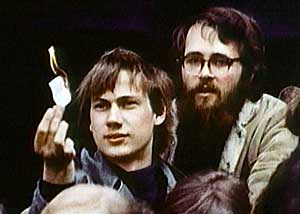
|
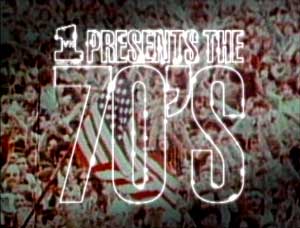
photo left: Burning draftcard
|
| Power
to the People
chronicles how the idealism of the 60s was tempered, diluted, co-opted
and eventually soured into the self-centered jingoism of the 80s, all
in ten quick years. The turmoil of Vietnam and Watergate took a huge toll
on Americans as they entered the Seventies. Songs like the Eagles’
“Life in the Fast Lane” and Richard Hell’s “Blank
Generation” captured America’s retreat from failed idealism
into drugs and hedonism. By the end of the decade prominent musicians
rallied together to stage the “No Nukes” concert while punk
rock gave voice to the anger of a new generation. |
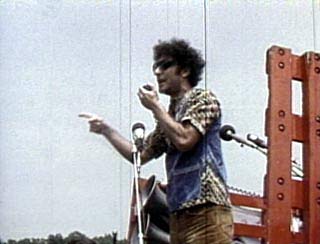
photo: Abbie Hoffman |
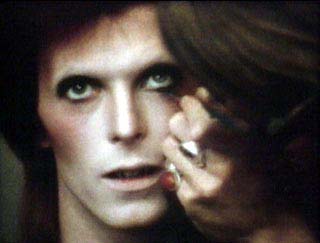
photo: David Bowie |
The Sexes examines the decade’s trends and movements, including androgyny, Women’s Lib, gay rights, promiscuity and divorce. A period of experimentation both musically and sexually, the Seventies saw the rise of female singer songwriters like Carole King and Joni Mitchell, and the New man, as exemplified by John Lennon. It was also marked by the height of the groupie phenomenon and the birth of gender-bending glam-rock. |
| Taking Care of Business explores how art and commerce collided in the 70’s, and Rock & Roll became big business. The music industry’s boom spawned the lavish hotel suites, stretch limos, private jets, and drug use that became hallmarks of the Rock & Roll lifestyle. In this era of excess, bands like Pink Floyd, David Bowie, Queen and Kiss staged huge tours with wildly theatrical shows. Inevitably, a backlash ensued, and Punk Rock was born. |
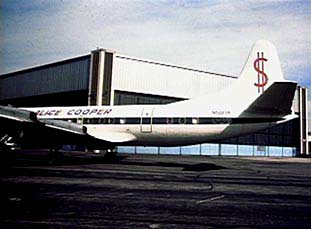 |
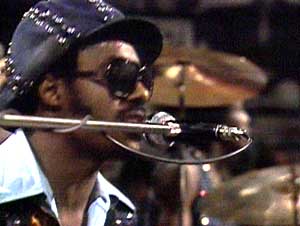
photo: Stevie Wonder |
Right
On
takes a look at the 70’s as a time of triumph and turmoil for black
Americans, and how the decade’s soul, R&B and hip hop music echoed
these changes. We explore the impact of the Black Power movement, Blaxploitation
films, poverty and forced busing, and how Marvin Gaye and Stevie Wonder
helped lead the politicization of black music in the early 70’s.
By the middle of the decade, agitation was replaced by apathy, and “message
songs” gave way to good-time party music. But just as punk had done
to Rock & Roll, the birth of rap brought anger and dissent back to
black music by the end of the decade. |
| Disco Explosion traces disco’s rise, from its roots in R&B, to urban nightclubs, and ultimately, thanks to Saturday Night Fever, to mass popularity. Disco’s omnipresence reflected our desire to escape onto the dance floor in the wake of political traumas of the decade. Disco also impacted on race relations, the drug culture, the sexual revolution and Rock & Roll. |
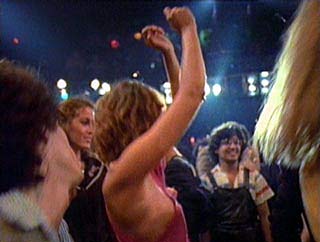
photo: Straight disco scene |
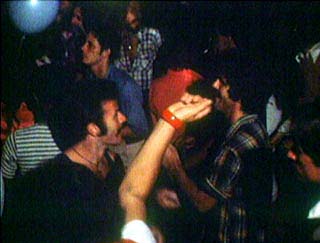
photo: Gay disco scene |
|
| AWARDS:
VH1's highest channel rating at the time, 1996 |
“…an addictively watchable and smartly assembled five-part pastiche of socio-musicology…” -USA Today
MORE REVIEWS |
|